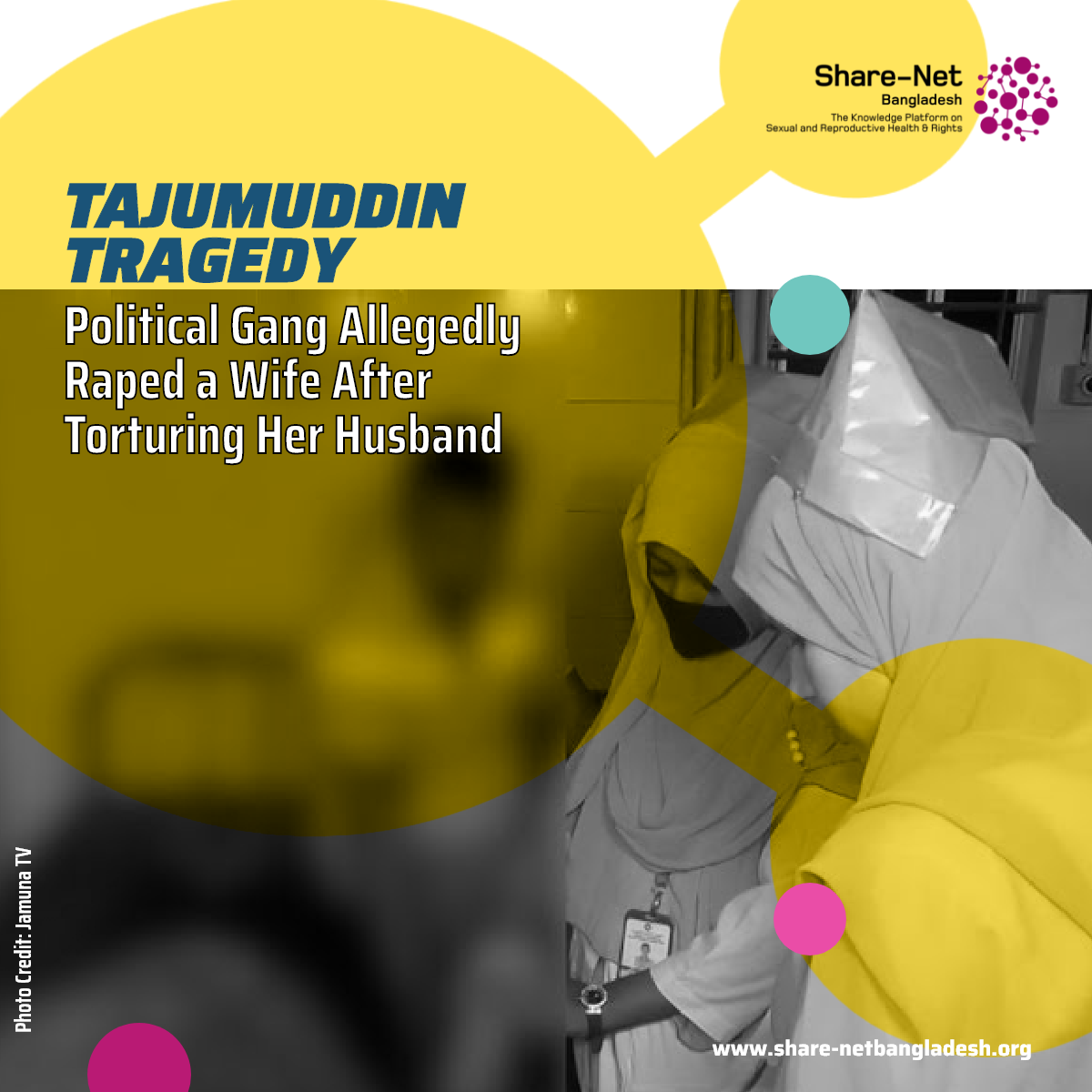Tajumuddin Tragedy: Political Gang Allegedly Raped a Wife After Torturing Her Husband
In a disturbing incident in Tajumuddin upazila, Bhola, a housewife was allegedly gang‑raped early Sunday morning after her husband was detained and beaten overnight. The horrifying events involving local political activists have again spotlighted the urgent need to reform sexual and reproductive health and rights (SRHR) protection mechanisms in Bangladesh.
The Night of Terror
According to the husband—currently residing in Dhaka—a group of five to six men, including Sramik Dal unit joint general secretary Farid Uddin, Jubo Dal activist Alauddin, and Chhatra Dal leader Md. Russell, forced their way into his slum-area home. They assaulted him with iron rods and hammers after his third wife allegedly called them over marriage disputes. When he couldn’t pay the demanded ransom (initially Tk 400,000, later reduced to Tk 100,000), the violence escalated.
The following morning, as his first wife returned home, the men asked her to fetch ransom money. While the husband was taken outside, the attackers allegedly gang‑raped her inside. Neighbours reported hearing “screaming and crying at night; we came out but couldn’t do anything out of fear,” and “We took a step forward but then stepped back. We clearly heard a woman crying.”
Political Cover or Accountability?
Following mass outrage and social media posts, the main suspect, Farid Uddin, was expelled from Sramik Dal, while Russell and another student leader were also removed from their positions. However, Russell denies involvement, and some activists argue that the expulsions occurred without proper inquiries.
Omar Asad, BNP’s Tajumuddin member secretary, confirmed to a local correspondent that:
“The torture of the husband overnight and the gang rape of his wife the next morning are true.”
Two suspects have been arrested so far, including one apprehended by RAB at a river terminal. Police say they are pursuing the others and will soon present them for identification.
A Reflection of National Trends
This case reflects broader national trends. According to the 2024 Violence Against Women (VAW) Survey, 70% of women in Bangladesh report intimate partner violence (IPV) in their lifetime, with 41% in the past year alone. Moreover, 29% of women have experienced sexual violence, rising to nearly 36% in regions like Barisal (Bhola’s division).
Even more alarming: 64% of survivors never disclose these crimes due to stigma or fear. A 2020–2024 study counted nearly 4,800 reported rape cases—one every nine hours—though experts warn many go unreported.
Why This Case Matters for SRHR
Sexual and reproductive health and rights hinge on bodily autonomy, safety, and legal justice. When powerful figures commit such violence, the message is clear: no one is safe. In this scenario, the victim and her husband remain too afraid to leave their home.
Under Bangladesh’s SRHR commitments and global standards like SDG 5, such incidents demand more than reactive policing—they require systemic reform.
What Needs to Change
-
Swift Justice: Implement efficient investigation and trial timelines, as recommended in SRHR frameworks.
-
Victim-Centered Policing: Introduce DNA collection, legal aid, and trauma counseling at police stations.
-
Community Empowerment: Mobilize neighborhood watch groups and public education campaigns in rural and coastal areas.
-
Political Accountability: Immediate suspension and prosecution of suspected political actors, regardless of affiliation.
This case is a wake-up call: Bangladesh must uphold the right to live free from sexual violence. Without substantial reform, fear and impunity—and the ongoing erosion of women’s reproductive and sexual rights—will remain a brutal reality.
Source: Daily Prothom Alo

